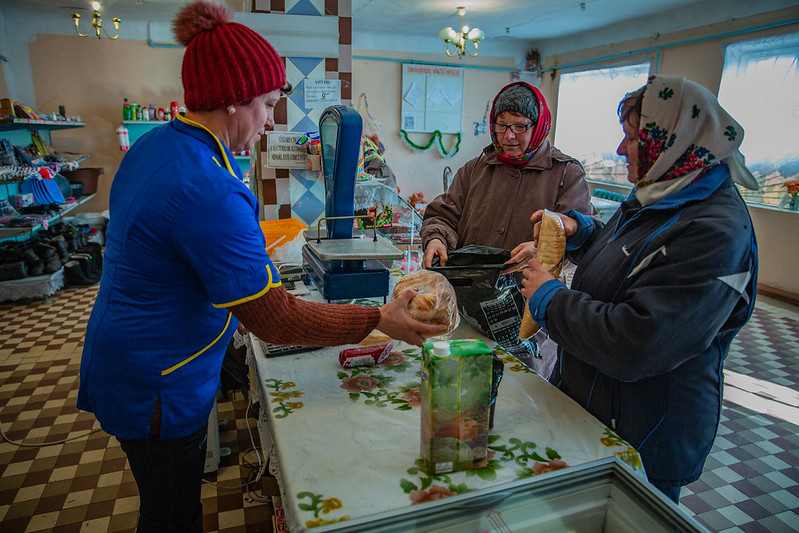Hunger in Moldova: What You Need to Know
 The Republic of Moldova is a small (almost 3.6 million population) landlocked country in Eastern Europe that gained independence from the Soviet Union in 1991. It is surrounded by Ukraine and Romania. An upper-middle-income economy, Moldova’s average economic growth rate is over 5% annually and it has experienced continued decreases in the rate of poverty since the early 2000s to virtually zero according to the International Poverty Line.
The Republic of Moldova is a small (almost 3.6 million population) landlocked country in Eastern Europe that gained independence from the Soviet Union in 1991. It is surrounded by Ukraine and Romania. An upper-middle-income economy, Moldova’s average economic growth rate is over 5% annually and it has experienced continued decreases in the rate of poverty since the early 2000s to virtually zero according to the International Poverty Line.
The Global Hunger Index 2024 ranked Moldova 26 out of the 126 countries ranked. Its score has dropped 68% since its first ranking 20 years ago, moving it from the Moderate to Low hunger category. All of the component indicators for the index were under 10%, with the highest being children under five who are stunted (6.6%). The percent of the population undernourished is less than 2.5%.
At the same time, food security varies among target groups. As noted by the World Food Programme, the Moldova 2022 Social Cohesion and Reconciliation Survey reported that 43% of women surveyed said that they could not meet household nutritional needs, with 24% saying they didn’t have money for food. This was particularly true for women older than 65, women survivors of domestic abuse, and women in the north of the country. Other at-risk groups included rural citizens, the disabled, those with less education, the unemployed, single-person households and households with five or more children.
Key Challenges to Food Security in Moldova
- War and Refugees. The war in Ukraine has had a significant impact on Moldova, which is characterized as the highest per capita host of Ukrainian refugees—almost a million as of February 2024, or the equivalent of 27% of its population. These displaced persons comprise primarily the elderly, women and children, and those with disabilities. In addition, the war has led to a rise in energy and food prices and an increase in poverty. Interestingly, the 2022 social cohesion survey found that positive attitudes toward refugees increased with food security.
- Climate and Its Impact on Agriculture. Agriculture contributes about 12% to Moldova’s GNP and employs almost a third of the population—25% of the formal workforce and over 60% of the informal workforce. Approximately 70% of the rural population is dependent upon agriculture; most of these are smallholder farmers who contribute over 62% of agricultural produce. Climate vulnerabilities include increasing droughts, extreme fluctuations in temperature, unpredictable precipitation and flash floods and landslides. Agriculture, including its dependence on infrastructure, is particularly susceptible to global climate change.
- Additional Factors. In addition, there are shortcomings including cyclical crop seasons that affect the consistency of supply. In addition, shortcomings in irrigation infrastructure, including threats from Russia; labor shortages; and dependence on foreign remittances.
Three Responses to Moldova’s Food Security Challenges
As of 1993, there has been a legal basis for ensuring “the right to adequate food” enshrined in the Constitution of the Republic of Moldova.
- In 2022, Moldova published a medium-term public policy planning document, the Food Security Strategy, for 2023-2030. Various national ministries and agencies have responsibility for implementing the strategy, along with NGOs and international development partners. The goals of the strategy are to “increase the population’s access to sufficient, safe and nutritious food, improve the quality of food, increase the purchasing power of the population and reduce the gaps related to food access for different categories of people.”
- In 2023, the Food and Agriculture Organization of the United Nations developed a Rapid response plan, March – December 2023, to address the impact of both the Ukraine war and climate conditions. The program provided cash, grants, supplies, and technical assistance. This included livestock feed and nutrients, training and “knowledge-sharing opportunities” and subsidies.
- The Government of Japan is financing a half-million 2024-2025 project to increase “agri-food resilience to intensifying external and climate shocks” in at least seven towns in Moldova. The goal is to prepare the country for future food crises. This effort is seen as moving to the achievement of commitments made under the Sendai Framework for Disaster Risk Reduction 2015-2030.
– Staff Reports
Photo: Flickr
Updated: November 2, 2024
